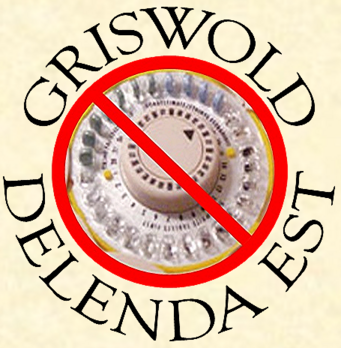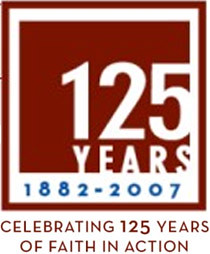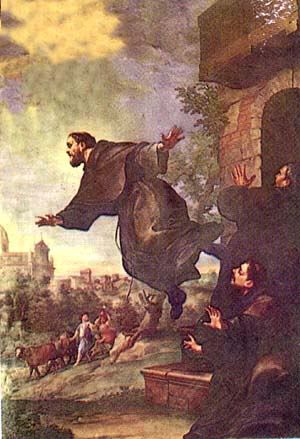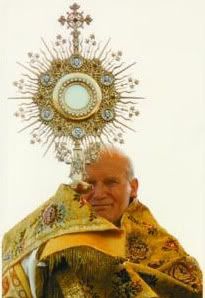Why Some Christian Houses of Worship Are
He starts off by lamenting the use of "worship service" and its varients to describe what Christians go to on Sundays. He's engaging in a very Chestertonian endeavor here ("I did try to found a heresy of my own; and when I had put the last touches to it, I discovered that it was orthodoxy."), and I largely agree with him. As do, I think, the rest of us. Catholics have never called what we go to on Sunday just "worship," because this is indeed an overly-narrow view of what we do. Not simply because our regular lives are meant to give glory to God, but also because the mass itself is more than simply worship (although it is undeniably that as well). He has, in many ways, stumbled across an exciting new truth, one that the Church has preserved for the past 2000 years.
Of course, having reached very similar conclusions, this doesn't mean we see deriving from them similar corrolaries. He ties, somewhat incorrectly, I think, the use of worship as a descriptor of church services with the sacerdotal and sacramental practices of Catholicism, Orthodoxy, and the Mosaic law. If we accept that all of our actions, prayer, work, and play, can and ought to give glory to God, then sacerdotalism must have other purposes than merely leading worship. After all, the Israelites praised God in their homes and in their workplaces -- their lives glorified the Creator just as Christian lives do. What they did at the Temple was not merely worship, it was something more, something more substantial and something more special. The covenant they enjoyed with God required that they offer burnt offerings to the Lord, and that they do so in Jerusalem (after the temple was built to house the ark) through the acts of the priests. But the giving of sacrifices was not simply an act of worship, it was a quasi-sacramental* act of consecration to the Lord.
In the same way, the mass is a sacrifice, and is said by a priest not because we need a priest to engage in the simple act of worship, per se, but because we need a priest to engage in the sacramental acts called for by the new covenant. The new covenant did remove the need to offer sacrifices in the Temple, just as it removed the requirements to follow the dietary laws, but while the specific practice was made obselete, it does not follow that everything that might resemble it in some way was also made obselete. If the obselecence of the old covenant were that complete, it would not be fitting to preserve the Old Testament in the canon, and Christ's utterance that He had come "not to destroy the law, but to fulfill it" would be false.
In the same way, the mass is not a mimickry or a re-do of Levitical Temple worship, it is its replacement. For in Christ we have the perfect sacrifice, the sacrifice that cleanses and sanctifies as no Levitical burnt offering could, for it is the Son of God that is lifted up, His flesh that is offered for the life of the world. Thus, the table of the mass IS an altar, and the man who leads the congregation IS a priest, and it is fitting that he should be set apart in his appearance. This is only fitting, because he carries out the divine command to celebrate the mass, he discharges a duty that Christ Himself entrusted to him. And in so doing, he, along with the gathered people and in fact the entire communion of saints participates (not recreates) in that one, single, and perfect sacrifice. A new order HAS been inaugurated, but it is a new order defined by Christ's presence in the most holy sacrament of the altar. To the extent that the Church worships in an extraordinary fashion in the physical building of a church, it is because there is something extraordinary there to worship: Christ, present body and blood, soul and divinity on the altar, in the monstrance, or in the tabernacle.
Anyone can imagine a God that is omnipresent -- God was so to the Jews, and the imperfect understandings that many non-Christians have of Him holds that He is so. How thoroughly disappointing is a merely omnipresent God! How dull and like all other creeds it is. How disenhearting to know that Christ became incarnate and suffered and died for our sakes only to leave us afterwards with nothing more than a book of wisdom and the ever-present reality that He already possessed! But in the Eucharist how spectacular and unique becomes our God! Here we have not only the perfect synergy of all the unusual elements of "popery" but that which makes Christ truly spectacular and His sacrifice truly joyous. For in the Eucharist God becomes present to us physically, so that all generations may partake of the Last Supper and all men come to receive Our Lord's divinity person in His sacrament. For thus we have been commanded to do. For this purpose did Christ establish a Church, holy, Catholic, and apostolic. For this reason did he set at its head St. Peter , and commission the disciples to "do this in memory of me." For far from being a repudiation of sacerdotalism, just as the gospels are far from being a true repudiation of the Old Testament, Christ's commission was the institution of a new priesthood, a perfect (in a theological, not a human sense) priesthood to perform the sacrament of the perfect sacrifice.
So yes, far too many Protestants call their ministers "priests" and their tables "altars." But these are misnomers not because they misrepesent an optimum state in which they exist, but because they have retained the physical and lexigraphic vestiges of an optimum state from which they have departed. They have thrown out the oatmeal and are left just with an empty can bearing a picture of a man in a funny black hat. If you have a system in which its various elements do not exist in harmony, it is likely the case that either the nomenclature or the actions have outpaced the other -- one has been distorted and the other remained as it was. These communities have elements that fail to make sense because they have retained words that no longer bear any relationship to what they actually do. They have the words associated with Our Lord's sacrament, but where is Our Lord Himself?
-------------
*I say "quasi-sacramental" because I do not think that, in a correct understanding of a sacrament, that the offerings were precisely such. But I am not an expert in Levitical acts.
File Under: The_Liturgy








1 Comments:
Great post -
I responded to it at the top of my blog, and I look forward to continuing the "conversation" -
Will you be in MEM around 4-5 Jan? I'll be passing through for a few days and it would be nice to catch up.
/E
Post a Comment
<< Home